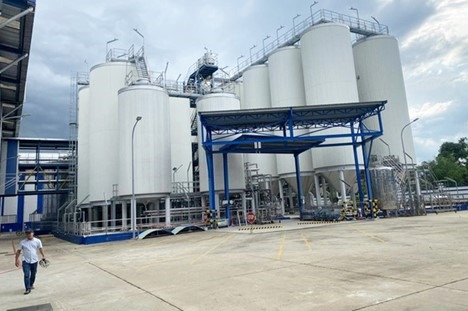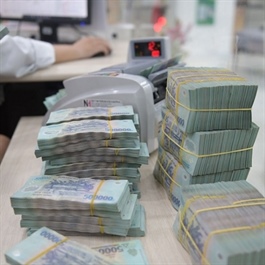Vietnam’s Quang Nam to lose $19mn in annual tax revenue following Heineken brewery shutdown: official
Vietnam’s Quang Nam to lose $19mn in annual tax revenue following Heineken brewery shutdown: official
Quang Nam Province in central Vietnam will see its tax revenue fall by some VND500 billion (US$19.5 million) a year after Heineken, the world's second-largest brewer, closed its brewery in the province, a provincial official said on Thursday.

A Heineken brewery in Quang Nam Province, central Vietnam. It is closed now. Photo: Vinh Loc / Tuoi Tre |
At a conference of the provincial Party Committee, Ho Quang Buu, vice-chairman of the administration in Quang Nam Province, said Heineken had announced the shutdown of its brewery in the province.
That closedown is projected to cost the province VND500 billion annually, Buu noted.
The factory was put into service in 2007.
Although it had the smallest capacity among the six Heineken factories across Vietnam, it contributed significantly to Quang Nam Province’s budget.
Prior to the outbreak of the COVID-19 pandemic, Heineken Vietnam paid between VND1 trillion ($38.9 million) and VND1.2 trillion ($46.7 million) in tax to the Vietnamese government's budget each year.
The figures, however, have kept a downward streak in recent years.
The Dutch brewer paid approximately VND20 billion ($780,000) in tax to the Quang Nam coffers in the first quarter of 2024.
In Vietnam, Heineken is officially employing some 3,000 people, creating 250,000 jobs in its supply chain, with its business performance accounting for 1.04 percent of the country’s GDP.
It has also been among the top taxpayers in Vietnam.
According to Heineken Vietnam, the implementation of Government Decree 100, which stipulates stricter driving-under-influence regulations with more severe sanctions on drunk driving, has contributed to changing consumers’ drinking habits, thus resulting in a decline in beer sales.
Luong Nguyen Minh Triet, secretary of the Quang Nam Party Committee, said at the conference that the province’s economy was recovering with its gross regional domestic product expanding 2.7 percent in the first half of this year.
However, tax revenue from land use fees, hydropower plants, and beer sales declined.
Many businesses encountered challenges, leading them to downsize, reduce capacity, or even suspend operations.
He required enhancing management quality and preventing tax evasion.




























